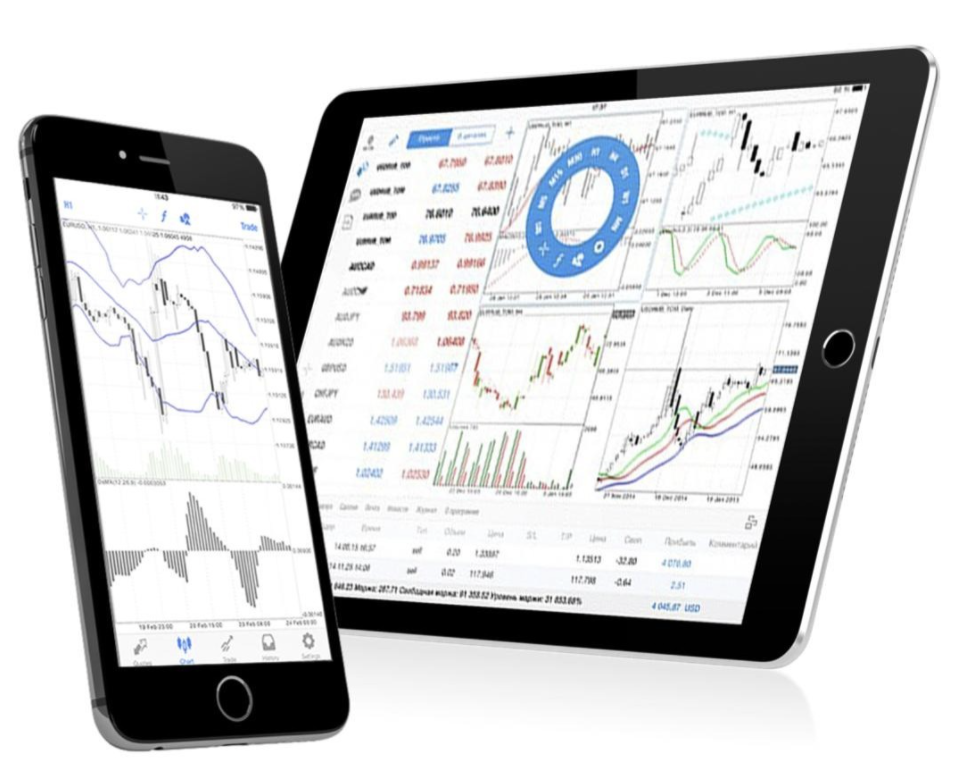What is hedging on a Forex Broker?
Table of Contents
Hedging is a famous risk measure that investors use to protect themselves against loss. It is commonly used by large corporations to eliminate risks or reduce exposure to the same. For instance, an airline company might buy crude oil CFDs not to make a profit but to protect the company from high expenditures if the price of this commodity increases. Given that the price of the oil is quoted in USD, they may also hold a long trade in a forex pair that contains the USD as the base currency and their local currency as the quote for the same purpose.
Like these big multinationals, forex traders also use hedging to protect their positions against unexpected price moves. They use hedging by opening positions that contradict their trades, or by buying forex options. This type of forex transaction requires skill. Below, we explain all you need to know about Forex hedging and how it works.

What is hedging in Forex trading?
Hedging is a type of transaction that a trader carries out to protect their positions from sudden unfavorable price moves. It is a short-term risk management technique that the trader uses if they suspect that a piece of news or event may cause unexpected price movements in the currency market.
The strategy is very popular with the bigger market participants, such as investment banks, multinationals, and institutional traders. Nowadays, retail forex traders are employing this technique to protect their positions. Long-term individual traders that do positional trading use it to avert risks sometimes.
Forex traders hedge their trades by entering another position that counters the risk in their existing trade. For instance, if a trader is long on a USDNZD pair. They could hedge this position by going short on the same pair or going long on a cross like the SGDUSD. Note that the goal of hedging is to protect from risk, not to make a profit.
This is one popular hedging technique among forex traders. There are others, and this risk measure can serve as good insurance. Like all insurances, it costs money and can be fairly expensive. It also requires trading experience and skills to use it effectively.

Trade forex with the best conditions and a regulated broker:
Broker: | Review: | Advantages: | Free account: |
|---|---|---|---|
1. Capital.com  | # Spreads from 0.0 pips # No commissions # Best platform for beginners # No hidden fees # More than 3,000+ markets | Live account from $ 20: (Risk warning: 78.1% of retail CFD accounts lose money) | |
2. RoboForex  | # High leverage up to 1:2000 # Free bonus # ECN accounts # MT4/MT5 # Crypto deposit/withdrawal | Live account from $ 10 (Risk warning: Your capital can be at risk) | |
3. Vantage Markets  | # High leverage up to 1:500 # High liquidity # No requotes # MT4/MT5 # Spreads from 0.0 pips | Live account from $ 200 (Risk warning: Your capital can be at risk) |
Different techniques of Forex hedging
There are many different hedging techniques that traders can use, as long as the broker allows it. Some of them are more complex than others. We explain a few hedging strategies below:
1. Simple forex hedging.
A broker can allow you to use hedging by placing a SELL trade on a currency pair for which you entered a BUY position earlier. Note that hedging is a short-term measure. So if you undo or close that position at the right time, you might see a profit on your trade, but your earnings would remain zero as long as both positions are open. This strategy is pretty simple and keeps you from losing money. It does not matter which direction the market moves, you would be covered.
2. Complex forex hedging.
Some brokers do not allow hedging on their platforms. Experienced traders may then use different advanced approaches to offset risks on their trades. These measures may not come off as hedging, seeing that the broker may not flag them. But if the transaction is a deliberate measure to minimize exposure to market risks, then it is hedging.
3. Trading various forex pairs.
This approach is similar to simple forex hedging but different. Here, you would be trading many different currency pairs to reduce or get rid of the risks completely. As we explained earlier, the trader can enter a position contrary to his existing trade to limit risks. For example, if you are long on a EURUSD pair. And a notable event cause you to suspect the USD might strengthen against the Euro. Apart from simultaneously going short on that pair, you could enter a buy trade in a pair like USDGBP.
This approach is more complex and requires trading experience and good knowledge of fundamental analysis.
4. Buying forex options.
Traders use forex options for hedging. Forex options refer to a contract that gives the trader the right, but not the obligation, to buy or sell a currency at a specified exchange rate, on or before the predetermined date.
To use this strategy, you can buy the PUT option to protect your long position against a sudden bearish move. Or you can choose a call option to decrease the risk of loss in your short trade if the price moves up. This approach attracts a premium that you pay to the broker.

Trade from 0.0 pips over 3,000 markets without commissions and professional platforms:
(Risk warning: 78.1% of retail CFD accounts lose money)
Do Forex brokers allow hedging?
Though hedging is very common now, and many use It often in their trading, not all brokers allow it on their platform. In countries like the US, for instance, hedging is against financial laws. So no broker can allow it there.
If hedging sounds interesting to you, you would have to check that a broker allows it before signing up with them.
Hedging in forex trading comes with some advantages. Experienced traders can properly regulate their accounts through it. Though it may also present some disadvantages. Below, we list out the major benefits and drawbacks of Hedging.
Pros of hedging in forex trading
1. Reduces risks.
Hedging reduces or eliminates the risks in a trade. This is its main purpose for forex traders. Through it, traders are able to put measures in place to protect their positions against unexpected market conditions.
2. Helps traders save time.
Positional traders who do not have time to monitor their trades use hedging. It is helpful and saves time for them.
3. Learn complex trading techniques
Hedging using forex options exposes the trader to complex trading strategies. Their trading skills can improve through it, and they can place more profitable trades.
4. It can be used to secure profits
Hedging is an effective tool for locking in profits. Experienced traders use it to ensure their earnings are not lost when the market unexpectedly moves in an opposite direction.

Cons of hedging
1. Can be expensive.
Hedging costs money. The trader has to be careful not to lose all their profit from this.
2. Decreased risk equals little or no profit.
In forex trading, sometimes higher risks mean greater profit potentiality. Therefore, the decreased risk might be equivalent to lower profit.
3. Requires experience and knowledge.
Novice traders may not be knowledgeable enough to use hedging. It might sometimes require a good knowledge of market operations and fundamental analysis. And only experienced traders might use it effectively.
4. Not useful for short-term traders.
Forex day-traders, such as scalpers may not find this strategy effective for their trading.
How to choose a good broker for hedging.
As we mentioned, not all brokers allow hedging. Not all brokers who allow it are good enough to deal with. First, you need to understand the brokerage company policy before you proceed. This information could be found on their website, or you may speak with their customer service to make the inquiry. Hedging involves more cost than you would incur in your usual trading.
Therefore, the first thing to consider, if you wish to use hedging in your trade, is the broker’s fee. You would be opening several positions to hedge. If the spreads are too high, you may lose all your profit quickly. If it’s a broker that charges commission as well, you would be paying commissions for all the trades you enter. Hence, if you wish to use this strategy, fees are a crucial factor in choosing your broker.
In addition to a low-fee broker, consider one who offers no requotes. Recurring requotes can not favor you if you wish to hedge. Retail currency brokers who offer ECN accounts are a great option in this case.
In conclusion, hedging is an adequate risk measure to protect your trades and secure your earnings. But it has its drawbacks. It can lead to additional trading costs and reduced profits. Knowledge, experience, and trading skills are also requirements to use this strategy in forex trading. Forex traders should be aware of the points before using this strategy. It can be highly beneficial for positional trading in forex. But you should ensure you are up to date on your fundamental analysis and knowledge of market conditions.
Trade from 0.0 pips over 3,000 markets without commissions and professional platforms:
(Risk warning: 78.1% of retail CFD accounts lose money)
FAQ – The most asked questions about hedging on a Forex broker :
How to pick a trustworthy forex broker for hedging?
If you want to use hedging in your trade, the broker’s charge should be your priority. To hedge, you would open many positions. Excessively wide spreads could cause you to lose all of your gains swiftly. You would be required to pay commissions for each trade you enter if the broker also charges commissions. Therefore, fees are a key consideration when picking your broker if you want to apply this technique.
What are the merits of hedging on a forex broker?
Risks in a deal are decreased or eliminated through hedging. Hedging is beneficial and saves time for positional traders who lack time to monitor their deals. The trader is exposed to complex trading methods when employing forex options for hedging. Hedging is a useful method for securing gains.
What are the drawbacks of hedging on a forex broker?
The trader must be cautious not to lose all their benefit from hedging because it costs money. In forex trading, bigger risks might occasionally translate into higher profit potentiality; consequently, the lower risk may translate into lower profit. A solid understanding of market operations and fundamental analysis may occasionally be necessary for hedging.
See more articles about forex trading here:
Last Updated on January 27, 2023 by Arkady Müller

 (5 / 5)
(5 / 5)